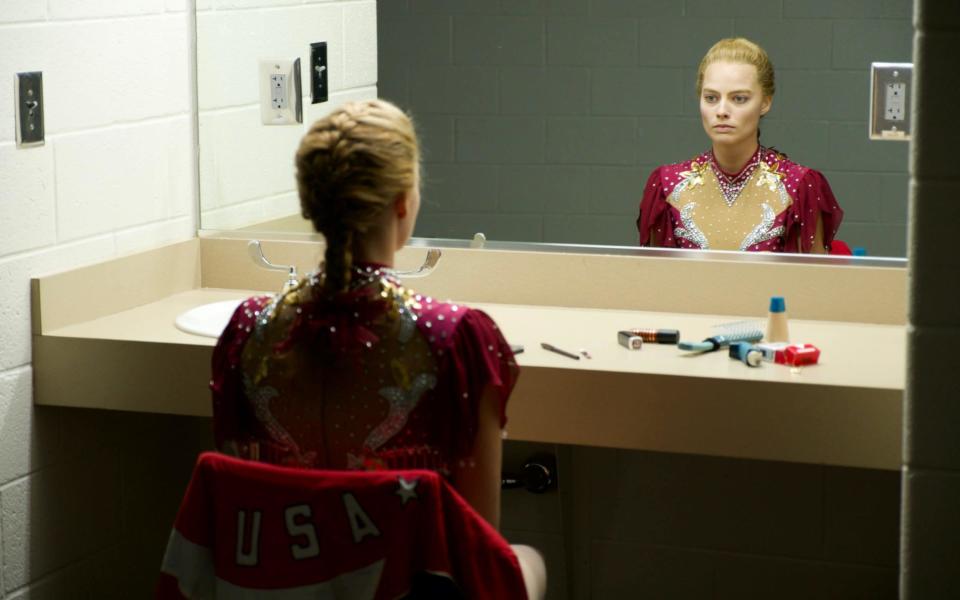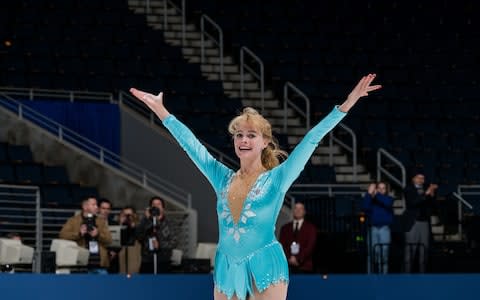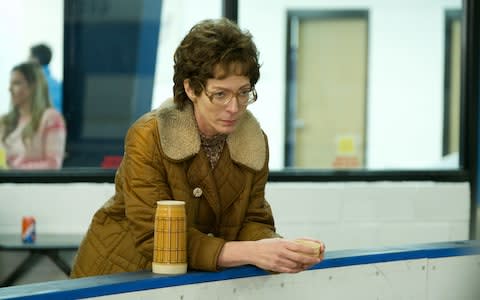I, Tonya review: Margot Robbie's dazzling skating biopic glides on the knife-edge between satire and sympathy

Dir: Craig Gillespie. Cast: Margot Robbie, Sebastian Stan, Allison Janney, Julianne Nicholson, Paul Walter Hauser, Bobby Cannavale, Mckenna Grace. 15 cert, 119 mins
These days, being Tonya Harding, the Olympic figure skater whose career went up in smoke in 1994, is presumably even harder than playing her, but Margot Robbie’s job in the viciously mesmerising I, Tonya still bespeaks a high degree of difficulty. And risk: the film, and her performance, glide on the knife-edge between satire and sympathy, often dazzling with their footwork.
The film gives Harding partial control of her own, jaw-dropping story, from her early days in thrall to an abusive mother, to the domino-chain of associations which led to her rival Nancy Kerrigan being clubbed in the knee, when she left her Detroit practice rink in January of that Winter Olympics year.
Kerrigan herself doesn’t get much of a look-in: this isn’t her story, so she can buzz off, basically. But Harding isn’t the only one given the chance to explain herself straight to camera, ironing out some contested details, or muddying others like crazy.
The point of the film’s mockumentary structure is to approach Harding’s fall from grace in multiple ways, embracing some of its unsavoury aspects with tabloid glee, but then reversing its position and giving her a day in court. “Truth” is relative and belongs to whoever’s talking, but the men involved in the scandal, per this reconstruction, are certainly much more culpable than Tonya was.
Her boyfriend and later husband, Jeff Gillooly, keeps popping up on screen to deny the domestic abuse we’re witnessing. It’s Sebastian Stan’s responsibility, playing Jeff, to defend and understand him as far as he can manage, and he’s more than up to the job.
There’s amazing sidebar support, too, from Paul Walter Hauser as Gillooly’s porcine buddy Shawn, not just the chief architect of the plot, but chief cause of it unravelling: his hilariously nerdy, uncomprehending squints in FBI interviews feel thoroughly of-the-moment. And Ricky Russert, as the actual guy hired to attack Nancy, brings such sweat and paranoia to his brief screen time that you want more of him – this is the Ray-Liotta-in-Goodfellas school of rabbit-in-the-headlights criminality.
Allison Janney will probably walk off with the Best Supporting Actress Oscar for playing monster mother LaVona to the hilt. One look at her chain-smoking in decrepit furs, a parakeet nibbling her left ear, and you’ve basically got the measure of the whole performance.

That might be another way of saying that the role doesn’t really go anywhere, but there’s a good moment when she complains to us about precisely that fact: she’s stuck being a hideous archetype with no narrative of her own, a stock villain repeatedly doing her worst. There’s so little good in LaVona that the film, for a significant stretch in the middle, practically takes a restraining order out against her.
There are quite a few missing nominations here, for work debatably more vital than Janney’s, including the virtuoso cinematography by Belgium’s Nicolas Karakatsanis (Bullhead, The Drop), which gets out on the ice in ridiculously dynamic long takes, dovetailing like an immaculate Torvill and Dean routine with the movie’s livid, addictive, disreputable rock soundtrack.

This is great direction: marrying the disparate components of your film into clever, surprising alliance. Craig Gillespie (Fright Night, Lars and the Real Girl) brings devious inspiration to all this joinery, and the pace, unusually for a biopic, rarely flags. Find a better use of a Cliff Richard song in any movie – including Summer Holiday – and you deserve a refund: Devil Woman, with its glacially chiming guitar intro and scare-quote lyrics, is absolutely perfect.
As for Robbie, it’s the headline star turn we’ve been waiting for, after a film-stealing appearance in a film (Suicide Squad) you couldn’t pay anyone to steal back off her. After conquering the triple axel – the mega-tricky jump which Harding was the first American woman ever to land – her electrified delight, arms outstretched, is a near-terrifying display of public vindication, of I-just-showed-them-that. She’s like Roxie Hart in Chicago – does that make Kerrigan Velma Kelly? – in every greedy, thrusting grab for the spotlight.
But as with all the best Roxie Harts, there’s a despair and a barely-hidden panic bubbling under there, a certainty that’s she’s wronged, owed, and misunderstood. You don’t have to agree that she’s the verifiable victim here – the point is watching Robbie switch on that pity party and make us well aware that Tonya is doing so. Compellingly stumped by its own heroine, the film simply can’t make its mind up about Tonya Harding. If it did, it wouldn’t get away with being such a blast.

 Yahoo Sport
Yahoo Sport 





































